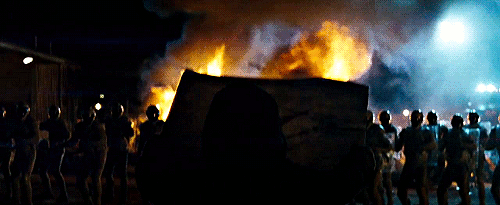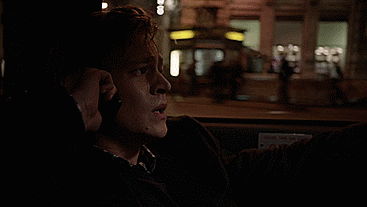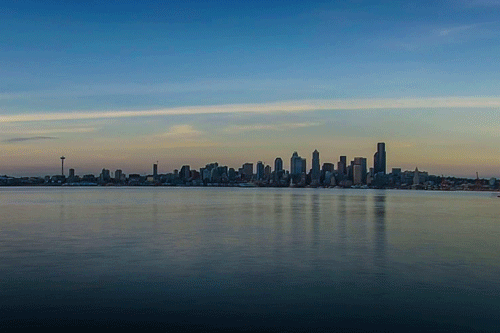
EVENTS IN AMERICA
The Business Plot - Henry Wallace's victory caused wealthy businessmen and Wall Street big shots to become concerned. Rumors began to spread that William Hearst and several other prominent tycoons were organizing a plan to prepare for the upcoming Wallace administration. Then, several political officials from both major parties supposedly got involved with military personnel following shortly. Somewhere along the way, the plan changed into replacing Wallace before he did any damage to America. Paul French was the journalist that broke the story shortly after MacArthur's March.
MacArthur's March - On Inauguration Day, attendees were surprised to see General Douglas MacArthur standing in place of to-be President Henry Wallace. He was sworn into a temporary presidency catching the crowd and some of the attendees off guard. Other than a short speech, MacArthur didn't answer any questions regarding the whereabouts of Wallace. Wallace supporters went to their representatives for answers, but they remained silent on the matter. Nobody, with the expectation of third-party members, from the Senate and Congress made any overt comments or objections. As a result, widespread protests and riots occurred across the country.
Butler's Revolt - Major General Smedley Darlington Butler, on May 16th, 1933, long concerned about the imprisonment of Henry Wallace and of McKee's presidential actions organized a military coup d'étact. The goal was to free Wallace from incarceration and neutralize both McKee and Pelley. His efforts, lasting for a week, were fruitless with the deaths of Wallace and Butler. Soon after, a major military purge commenced, decimating the American military's leadership.
The Savannah Spring - On July 4th, 1939, President McKee and Vice President Pelley traveled to Savannah to campaign for a third term. A week-long massive rally, similar to the one in Madison Square Garden earlier in the year, was planned out. On the second day, McKee went up to speak and reveal the big announcement. Instead, the podium exploded and caused everyone on the stage to sustain injuries. Suddenly, a group that called themselves Sons of Liberty entered the venue and opened fire at the stage. A firefight occurred and eventually spilled over to the city.
The venue burned down shortly after McKee and Pelley were escorted out by security, but the Sons of Liberty gave chase. Fighting prolonged into a brutal two-day siege before the rebels were defeated overwhelmed by the Army and National Guard, but the damage was done. McKee bled out inside the state car while Pelley was too injured to take over the presidency.
Brigadier General Charles Lindbergh and General Douglas MacArthur, who managed to end the Sons of Liberty, became national treasures overnight. After tales of their exploits spread to the upper echelons, in the wake of McKee's death and Pelley's injuries, MacArthur suggested that he took over the presidency again until the 1940 election and there was some hesitation. However, with Lindbergh announced as the Republican candidate, it was (eventually) met with universal approval.
1940 Election -
MacArthur's March - On Inauguration Day, attendees were surprised to see General Douglas MacArthur standing in place of to-be President Henry Wallace. He was sworn into a temporary presidency catching the crowd and some of the attendees off guard. Other than a short speech, MacArthur didn't answer any questions regarding the whereabouts of Wallace. Wallace supporters went to their representatives for answers, but they remained silent on the matter. Nobody, with the expectation of third-party members, from the Senate and Congress made any overt comments or objections. As a result, widespread protests and riots occurred across the country.
Butler's Revolt - Major General Smedley Darlington Butler, on May 16th, 1933, long concerned about the imprisonment of Henry Wallace and of McKee's presidential actions organized a military coup d'étact. The goal was to free Wallace from incarceration and neutralize both McKee and Pelley. His efforts, lasting for a week, were fruitless with the deaths of Wallace and Butler. Soon after, a major military purge commenced, decimating the American military's leadership.
The Savannah Spring - On July 4th, 1939, President McKee and Vice President Pelley traveled to Savannah to campaign for a third term. A week-long massive rally, similar to the one in Madison Square Garden earlier in the year, was planned out. On the second day, McKee went up to speak and reveal the big announcement. Instead, the podium exploded and caused everyone on the stage to sustain injuries. Suddenly, a group that called themselves Sons of Liberty entered the venue and opened fire at the stage. A firefight occurred and eventually spilled over to the city.
The venue burned down shortly after McKee and Pelley were escorted out by security, but the Sons of Liberty gave chase. Fighting prolonged into a brutal two-day siege before the rebels were defeated overwhelmed by the Army and National Guard, but the damage was done. McKee bled out inside the state car while Pelley was too injured to take over the presidency.
Brigadier General Charles Lindbergh and General Douglas MacArthur, who managed to end the Sons of Liberty, became national treasures overnight. After tales of their exploits spread to the upper echelons, in the wake of McKee's death and Pelley's injuries, MacArthur suggested that he took over the presidency again until the 1940 election and there was some hesitation. However, with Lindbergh announced as the Republican candidate, it was (eventually) met with universal approval.
1940 Election -





